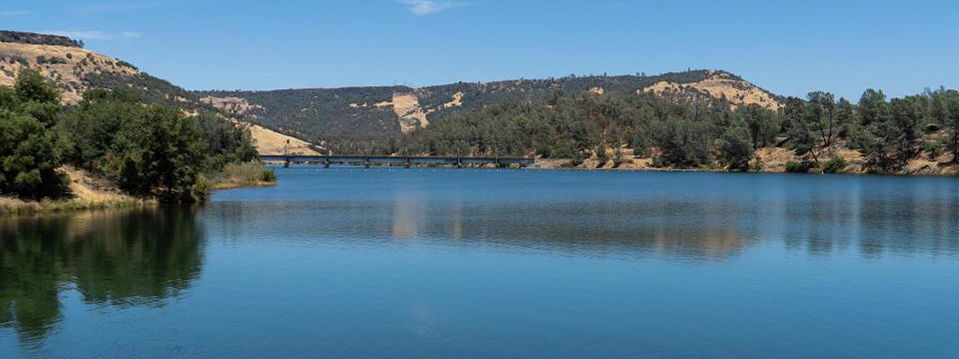Questions about Hard Water
What is Hard Water?
Water becomes hard by accumulating additional minerals, like calcium and magnesium, during the water cycle. • The greater the amount of minerals dissolved in the water, the harder it becomes. These naturally occurring minerals are harmless, but higher levels present in drinking water can seem unappealing to some customers.
How is Hard Water Measured?
Water hardness is measured in milligrams per liter (mg/L) as calcium carbonate. Water can be divided into four different hardness levels:
| Type | Mg/L as Calcium Carbonate |
| Soft | Less than 75 |
| Moderate |
75-150 |
| Hard | 150-300 |
| Very Hard | Above 300 |
How Hard is Zone 7 Water?
Zone 7’s primary water supply is treated surface water imported through the State Water Project infrastructure, which conveys the water through the California Delta to the South Bay Aqueduct and into the Tri-Valley. Zone 7 pumps local groundwater as needed throughout the year to meet system demand.
Certain areas of the Zone 7 service area have higher levels of water hardness than other areas due to different sources of water supply. Groundwater typically has higher hardness levels than surface water (over 300 mg/L vs. less than 100 mg/L).
Zone 7 typically supplies approximately 80% surface water and 20% groundwater. This percentage will vary from year to year as well as where you live in the Zone 7 service area. Water in the western portion of the Zone 7 service area is typically harder than water in the eastern portion of the service area, as the groundwater wells are located in the western portion of the system.
What Problems May I Experience if I Have Hard Water?
You may notice white spots and streaks on your dishes and plumbing fixtures.
Soap may not lather as well as with softer water.
You may experience plumbing issues. Older homes with steel pipes are more vulnerable to lime scale, and this can result in reduced water pressure. Hot water tanks may accumulate excess sediment build up at the bottom of the tank more quickly and will need to be flushed more frequently for preventative maintenance.
Is Zone 7 Taking Any Steps to Reduce Hard Water?
In 2009, Zone 7 began operating a groundwater demineralization plant in Pleasanton at the Mocho Wellfield. The plant can treat up to 7 million gallons of groundwater a day using a process called reverse osmosis that removes minerals from the water and results in softer water delivered to the system. Operation of this plant is dependent on multiple factors, including surface water supply and system demand.
The Mocho plant is part of Zone 7’s Salt Management Plan to address salt loading in the groundwater basin and the Water Quality Management Program to address water quality issues in potable and nonpotable water. Customers not directly receiving water from this plant will still benefit because of an overall reduction of salts in the groundwater basin from which all of the Zone 7 wells pump.
Do I Need a Water Softener?
A water softener can address the aesthetic quality of your water if you desire to reduce its hardness.
Some water softeners add sodium to the water. For customers on a low sodium diet, this may not be ideal so consult with your doctor first.
Installation of self-regenerating softeners is often discouraged because they add excess amounts of salt to the wastewater. If recycled water is used in your area, this can increase the salinity of recycled water used for irrigation.
What Other Steps Can I Take to Deal with Hard Water?
You can add a tablespoon of white vinegar to your dishwashing cycle to reduce the appearance of hard water spots. It also works great when used in a solution to remove scale from other plumbing fixtures.
Remove soap scum using a hard water cleaning aid. These can be purchased at most grocery and big box store chains.
Remove excess water from the shower after every use with a towel or a squeegee. This will prevent the hard water streaks from forming in the first place

